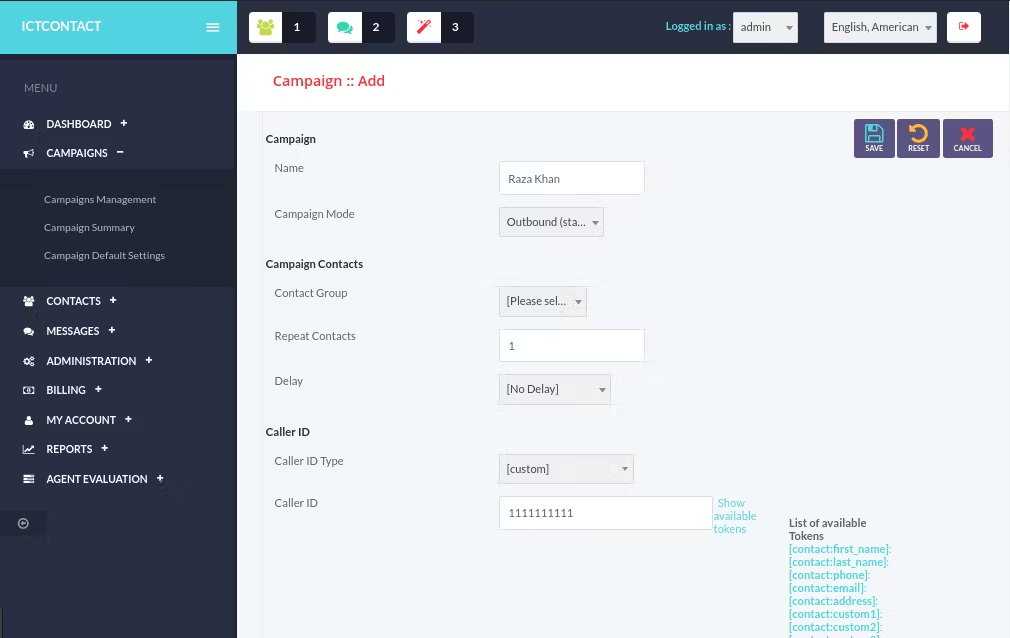In today’s competitive market, call centers are crucial for maintaining strong customer relationships and driving business success. As customer expectations evolve, the tools and strategies call centers use must also advance. Implementing Contact Center CRM (Customer Relationship Management) software can dramatically transform how call centers operate. This article delves into why integrating CRM software is a game-changer, highlighting its essential features, current trends, and concluding with its overall impact.
Understanding Contact Center CRM Software
What Is Contact Center CRM Software?
Contact Center CRM software is a specialized tool designed to manage customer interactions and streamline communication processes within a call center. Unlike traditional CRM systems, which cater to a broad range of business functions, Contact Center CRM focuses on enhancing the efficiency and effectiveness of call center operations. It integrates various open source unified communication channels into a single platform, providing agents with a comprehensive view of customer interactions and data.
Key Features of Contact Center CRM Software
1. Omnichannel Integration
One of the standout features of Contact Center CRM software is its ability to integrate multiple communication channels—such as phone, email, chat, and social media—into a unified interface. This omnichannel approach ensures that agents can seamlessly manage interactions across different platforms, providing a consistent and efficient customer experience.
2. Advanced Call Routing
Effective call routing is crucial for minimizing wait times and connecting customers with the appropriate agents. Contact Center CRM software includes sophisticated call routing algorithms that direct calls based on factors like customer history, agent expertise, and current workload. This ensures that each customer is matched with the most suitable agent, improving resolution times and satisfaction.

3. Real-Time Analytics and Reporting
Data-driven decision-making is essential for optimizing call center performance. CRM software offers real-time analytics and reporting tools that track key performance indicators (KPIs), such as average handle time, first call resolution, and customer satisfaction scores. These insights help managers identify trends, monitor agent performance, and make informed decisions to enhance operations.
4. Customer Profiling and Personalization
Personalization is a key driver of customer satisfaction. Contact Center CRM software provides detailed customer profiles, including interaction history, purchase records, and preferences. This information enables agents to tailor their conversations and offer personalized solutions, creating a more engaging and relevant customer experience.
5. Automation and Workflow Management
Automation features in Contact Center CRM software help streamline repetitive tasks and reduce manual effort. Automated processes such as call logging, task assignment, and follow-up reminders free up agents to focus on more complex and value-added activities. Workflow management tools also facilitate better coordination and task tracking within the team.
6. Collaboration Tools
Effective teamwork is vital in a call center environment. CRM software includes collaboration features like internal messaging, shared notes, and case management systems. These tools enable agents and supervisors to communicate and collaborate seamlessly, ensuring that customer issues are addressed efficiently and consistently.
Industry Trends in Contact Center CRM Software
1. AI and Machine Learning Integration
Artificial Intelligence (AI) and Machine Learning (ML) are increasingly being integrated into Contact Center CRM software. These technologies enhance capabilities such as predictive analytics, automated responses, and sentiment analysis. AI-driven chatbots and virtual assistants are also becoming more prevalent, providing instant support and improving overall efficiency.
2. Cloud-Based Solutions
Cloud-based CRM solutions are gaining popularity due to their flexibility and scalability. Cloud platforms allow call centers to access their CRM systems from anywhere, facilitating remote work and multi-site operations. They also offer cost-effective solutions with minimal upfront investment and maintenance requirements.
3. Enhanced Data Security
With the growing emphasis on data privacy and protection, Contact Center CRM software is incorporating advanced security features to safeguard sensitive customer information. Encryption, secure access controls, and compliance with regulations like GDPR are critical aspects of modern CRM systems.
4. Integration with Other Business Systems
Seamless integration with other business systems, such as marketing automation and sales platforms, is becoming more common. This interconnected approach enables a holistic view of customer interactions across different departments, improving coordination and efficiency throughout the organization.
5. Focus on Customer Experience (CX)
The focus on delivering exceptional customer experiences is driving innovations in Contact Center CRM software. Features that enhance personalization, streamline interactions, and provide real-time support are increasingly prioritized. Enhancing the overall CX is seen as a key competitive differentiator in the call center industry.
Conclusion
Implementing Contact Center CRM software is indeed a game-changer for call centers. By integrating multiple communication channels, providing advanced call routing, and offering real-time analytics, CRM software enhances operational efficiency and customer satisfaction. The latest trends, including AI integration, cloud solutions, and a focus on data security, further amplify the benefits of CRM systems. Adopting Contact Center CRM software not only transforms how call centers operate but also positions them for sustained success in a dynamic market. Embracing this technology is a strategic move that can significantly impact your call center’s performance and customer relationships.
Leveraging Open Source in ICT
